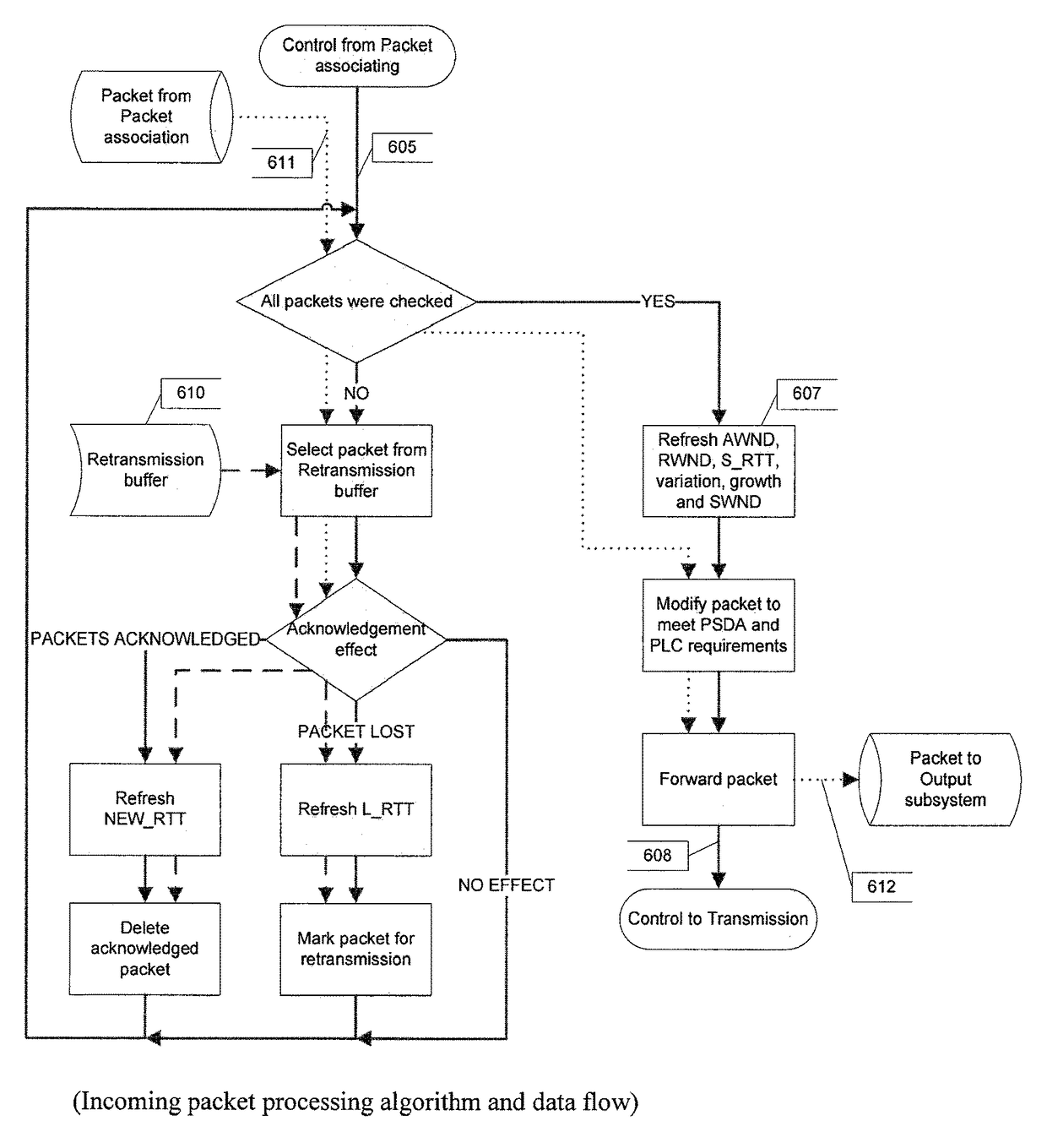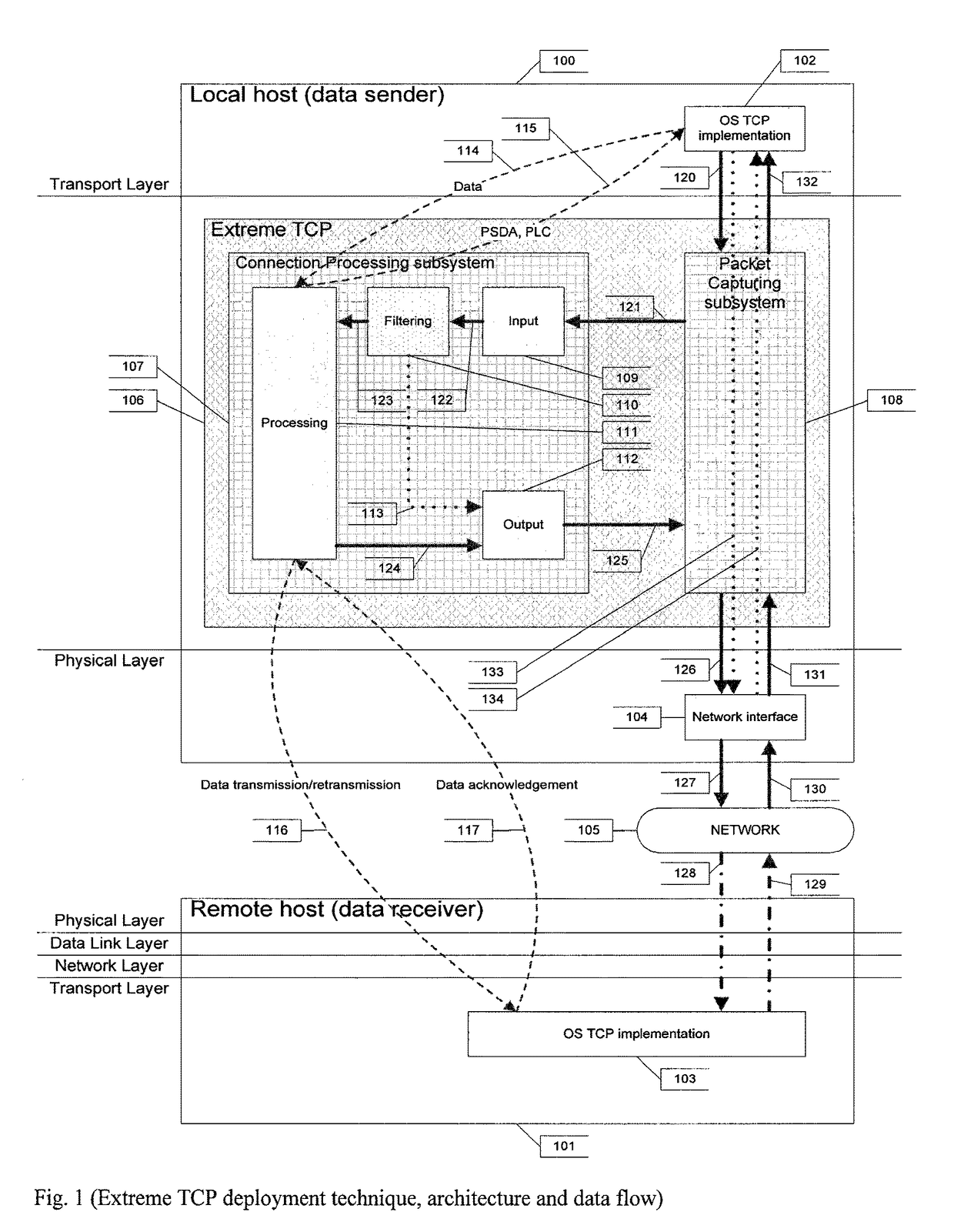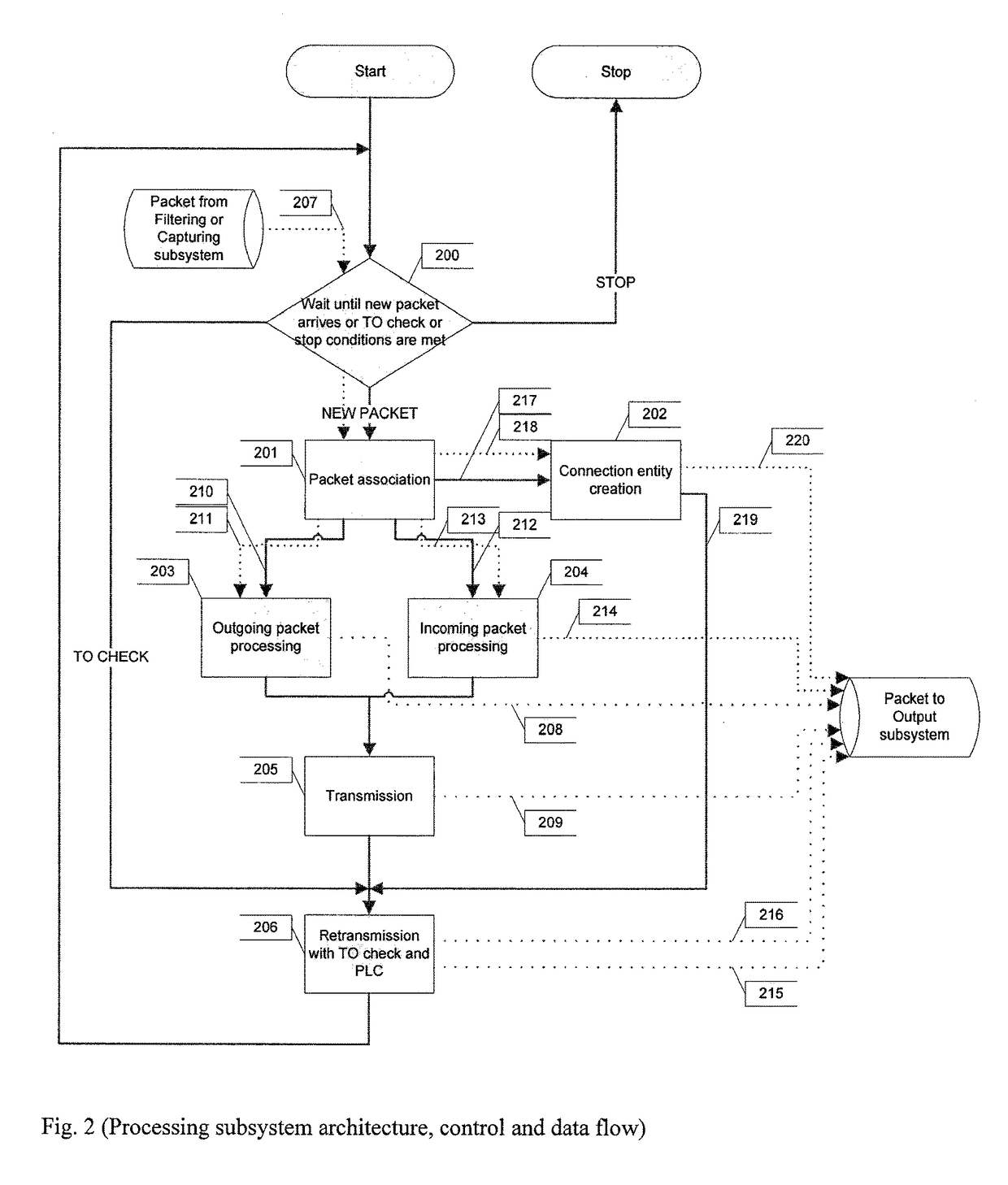Maximizing bandwidth utilization in networks with high latencies and packet drops using transmission control protocol
a technology of transmission control protocol and network latencies, applied in the field of computing systems and networks, can solve the problems of inefficiency of tcp, inability to utilize the entire available bandwidth of the network channel it operates, and inability to send another packet too long, so as to maximize the available bandwidth utilization
- Summary
- Abstract
- Description
- Claims
- Application Information
AI Technical Summary
Benefits of technology
Problems solved by technology
Method used
Image
Examples
Embodiment Construction
[0031]Embodiments of the current invention introduce modifications of the TCP protocol which are generally relative to its data transmission / retransmission algorithms and particularly to Send Window Size calculations during different TCP runtime phases.
[0032]Different TCP modifications may be distinguished by their congestion avoidance techniques. TCP Tahoe, Reno and New-Reno use so called ‘reactive’ congestion avoidance which means such modifications may detect the congestion only after it has occurred. ‘Reactive’ congestion avoidance assumes that Send Window Size is being increased until packet loss is detected. Packet loss is regarded as congestion evidence and required actions are taken depending on particular modification. Such reactions may include Send Window Size and Send Window Threshold Size adjustment, performing retransmit or fast retransmit and entering slow start or fast recovery phases.
[0033]One weakness of such ‘reactive’ congestion avoidance is the fact that congest...
PUM
 Login to View More
Login to View More Abstract
Description
Claims
Application Information
 Login to View More
Login to View More - R&D
- Intellectual Property
- Life Sciences
- Materials
- Tech Scout
- Unparalleled Data Quality
- Higher Quality Content
- 60% Fewer Hallucinations
Browse by: Latest US Patents, China's latest patents, Technical Efficacy Thesaurus, Application Domain, Technology Topic, Popular Technical Reports.
© 2025 PatSnap. All rights reserved.Legal|Privacy policy|Modern Slavery Act Transparency Statement|Sitemap|About US| Contact US: help@patsnap.com



